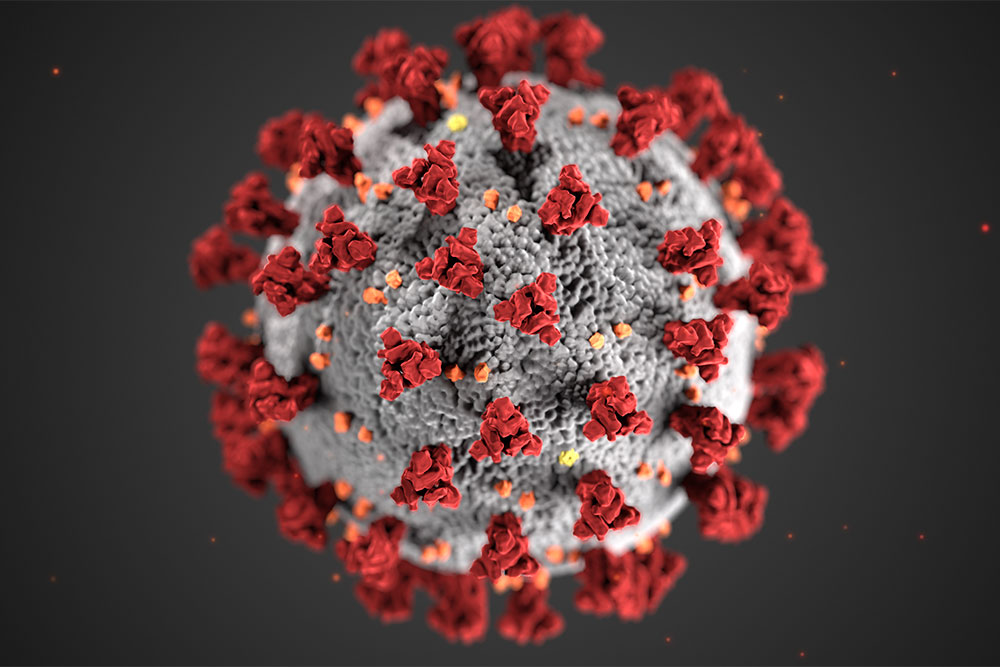
E25Bio, a Cambridge, Massachusetts-based biotech startup that develops diagnostic tests for infectious diseases like dengue and Zika, has a new rapid antigen test for Covid-19. The company’s technologies grew out of an MIT lab led by Lee Gehrke, the Hermann L.F. von Helmholtz Professor at the Institute for Medical Engineering and Science (IMES), and Irene Bosch, then a research scientist at IMES. The team’s early research was funded by the MIT Energy Initiative’s Tata Center for Technology and Design. The startup recently raised $2 million from investors to specifically develop and manufacture testing kits for Covid-19.
E25Bio’s rapid diagnostic test resembles an over-the-counter pregnancy test and provides visual results within 15 minutes by detecting the presence of the virus in the patient sample. As a point of comparison, hospitals across the country are currently using polymerase chain reaction (PCR)-based tests that typically take 24 hours or more in some cases to provide results. Given the exponential rate of spread of the virus, there is a critical need to deploy fast, reliable, affordable, and easy-to-use point-of-care tests in order to flatten the curve by quickly detecting and isolating patients who need immediate care. Having identified a Massachusetts-based manufacturing partner, the startup is in the process of obtaining clearance under FDA’s Emergency Use Authorization model. If approved, the test would give medical professionals an opportunity not just to test patients at the onset of coronavirus symptoms, but also to track the progression of the disease by testing the same patient over time.
Similar to a PCR-based test, E25Bio’s test relies on a patient’s nasopharyngeal swab. “It is incredibly difficult to find nasal swabs for our clinical trials at the moment. Our team is also working to determine if alternate samples, like saliva, can be considered, which would help reduce patient discomfort, and potentially eliminate the reliance on nasal swabs,” says Bosch. If a testing kit is made available over the counter, it could dramatically reduce the load on the already over-burdened healthcare systems.
Also unique to E25Bio’s test is the integration of a mobile app that catalogs the results of the test by time and location. This feature could prove particularly useful in gathering valuable data about the spread of the virus, allowing patients to voluntarily share results with state public health authorities, who are at the forefront of tracking and responding to the disease. This real-time data could potentially enable governments to take preventative steps to control further spread of the disease.
“The app makes the test semi-quantitative by measuring the intensity of the test line, removing subjectivity in interpreting and reporting the results. It can record patient health conditions, location, symptoms, and days since the beginning of the symptoms. Having said that, rapid tests are not usually part of medical records, so this is new territory. We are proceeding in ways that protect patient privacy while advancing research on the prevalence and locations of the virus infections,” says Gehrke.
The team at E25Bio is also working with a UK-based manufacturer that has the capacity to produce millions of tests per day. Speaking on the need to quickly scale up production, Gehrke says, “The conditions required for manufacturing this test are unique so we’re not limited by geography but by the ability to find a good manufacturing partner with the right facilities. While we’re actively engaged with the FDA, researchers at local hospitals are also studying the product to test the sensitivity of detection.” The startup also works with a manufacturer in India for producing similar paper-based diagnostic tests that are used to detect dengue and Zika.
Bosch, who serves as E25Bio’s CTO, and Gehrke have worked closely with the Tata Center on implementation pathways for their research in rapid diagnostics. With the help of the center’s Translational Research program, Bosch and Gehrke were able to move their early-stage technology toward commercialization. “The Tata Center and the Tata Trusts believed in us and funded our early research before anyone else. Together with our manufacturing partner, High Media in India, we’re very grateful for all their support,” says Bosch.
The Tata Center at MIT is supported by the Tata Trusts, one of India’s oldest philanthropic organizations.
This article appears in the Spring 2020 issue of Energy Futures.